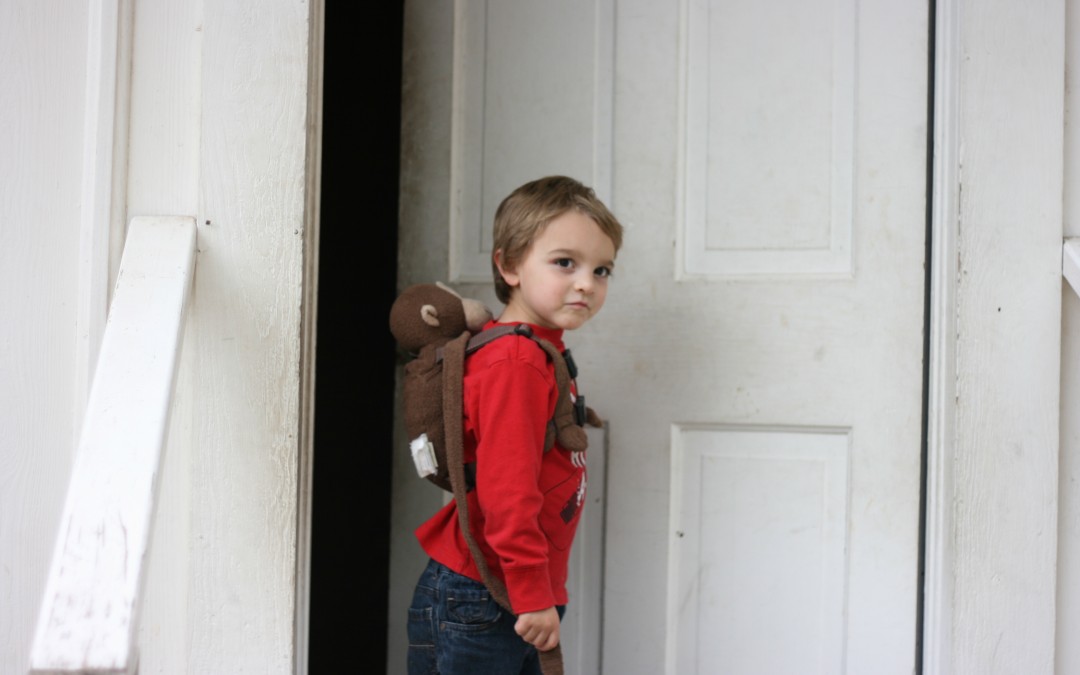Today I had a song stuck in my head, one from Plumb’s CD Need You Now. The line from the song goes like this:
“But I’ve never felt this tied up and helpless/and all that I know is you’re gone, how do I let go?” and when I’ve finished singing it, I have this from my 4-year-old: “The singer wasn’t really tied up, was she?”
This began a discussion about how “tied up” isn’t always used in a literal sense, like the singer had ropes wrapped around her or something, but is sometimes an expression for feeling constrained by something, like how when Mama had the twins and they had to stay in the neonatal intensive care unit for a while and couldn’t come straight home with us, Mama and Daddy decided not to go anywhere far away, because we would be leaving half our children behind. Mama and Daddy were “tied up” by the twins’ need to stay in the hospital.
And then this, from my 6-year-old: “We tie you up, don’t we, Mama?”
It took me a while to answer this question because, in a way, yes they do. Becoming a parent changes everything. It changes even the most seemingly simple things, like how late you can stay out playing a gig with your band because kids have to be in bed by 8 p.m. so they can concentrate well in school tomorrow, and how writing that has to be perfected in a quiet space can only be attempted during sleep time in a house filled with five wild boys, and how date night frequency is proportionate to how many people are willing to watch five boys alone (not many, I can tell you).
But these constraints don’t make us feel “tied up” unless we expect something different.
This has been a gradual knowing for me. When we had one child, maintaining our lives and all the extras and that relentless pursuit of dreams was still relatively easy. Even two children didn’t change a whole lot for us. And then we had three, and suddenly we couldn’t find shoes when it was time to go and clothes mountains (clean, just not put away) piled up on our banister and bedtime became a two-hour power struggle. And then, in the middle of that drowning, add two more to the count.
I like my control. I like my routine. I like to know that I will be able to write between these set hours and no one will disturb me because they’ll all be quietly sleeping in their rooms like little angels, but reality sends one child knocking on the door because he needs to go to the potty and he can’t reach the light switch and it’s too dark to move the stool to where the light switch is, and then another knocking because he feels a little bit scared all by himself, and another knocking because I forgot one book that he needs for his quiet time.
But even in this, my hands don’t become tied until I let them become tied by my sour attitude and my too-high expectations and my ridiculous dreams of an alternate reality.
These words from Laura Markham give me pause: “Our children learn values by observing what we do and drawing conclusions about what we think is important in life. Regardless of what we consciously teach our child, he’ll understand and shape his values based on what he sees us do.”[1]
I hope my children learn by my actions that my values tangle tight around family and relationships and nurture. I hope they know inherently that they do not tie me up so much as they set me free from irrational expectation and perceived disappointment and most of all myself.
Here is where peace settles for today: Understanding that parenting changes everything. Accepting what it requires and how much it takes.
And then giving without restraint so we are living without constraint.
This is an excerpt from Book 8 of the Family on Purpose series: We Live Peacefully. Hopefully. Courageously.

[1] Markham, Laura. Peaceful Parents, Happy Kids: How to Stop Yelling and Start Connecting. New York: Perigee Book, 2012.


